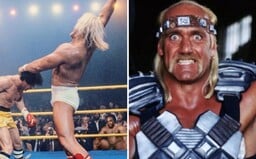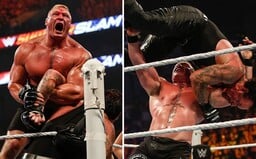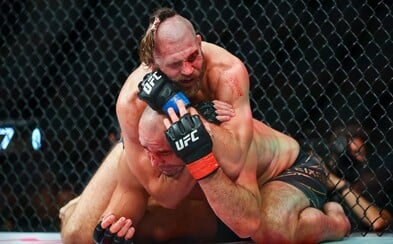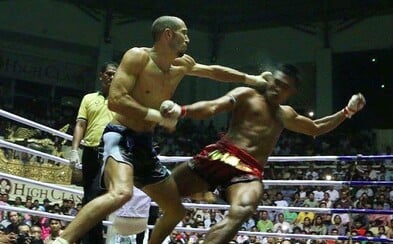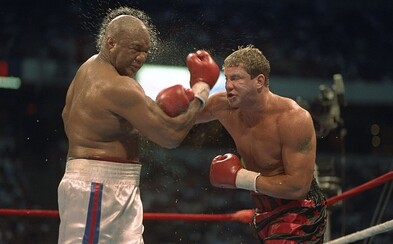 The Return Of Conor McGregor, Jon Jones Or Ivan Buchinger. The Most Anticipated MMA Fights Of 2023
The Return Of Conor McGregor, Jon Jones Or Ivan Buchinger. The Most Anticipated MMA Fights Of 2023
The Return Of Conor McGregor, Jon Jones Or Ivan Buchinger. The Most Anticipated MMA Fights Of 2023
The Return Of Conor McGregor, Jon Jones Or Ivan Buchinger. The Most Anticipated MMA Fights Of 2023
Commemorating the Boxing Legend Muhammad Ali Who Would Have Been 80 This January
The multiple World- and Olympic champion, considered by many to be the best boxer of all time, would have been 80 years old this January.
If problems persis, please contact administrator.
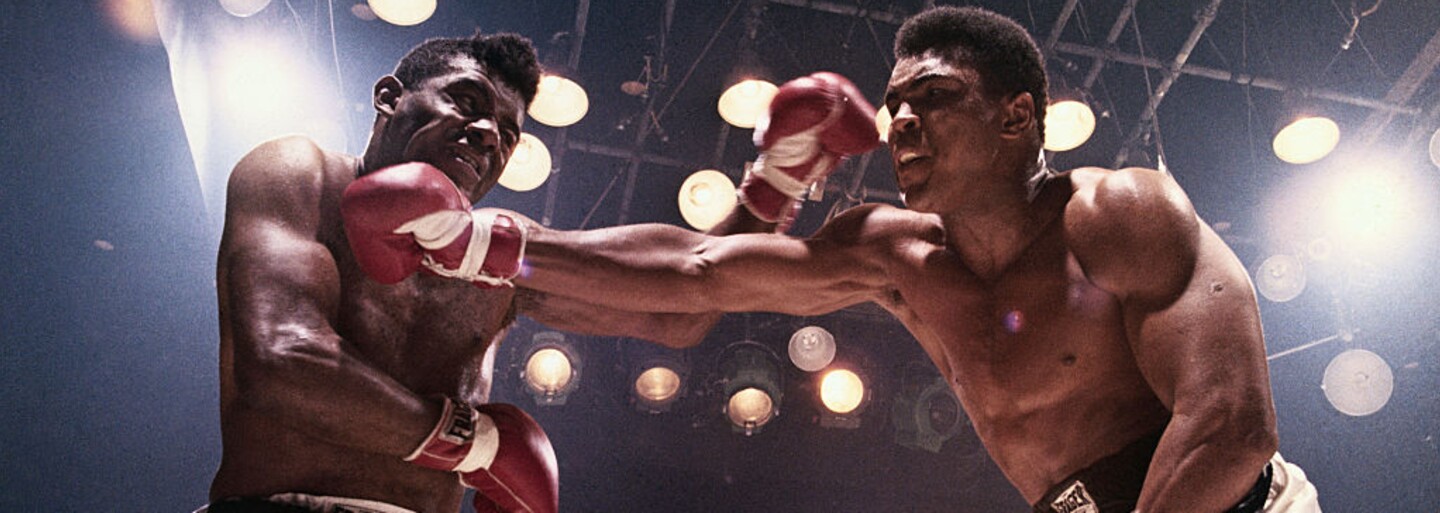
This January would have been the famous American boxer and activist's 80th birthday. Muhammad Ali, born Cassius Marcellus Clay Jr., was notorious for his outstanding speed and skill. So much so that he humiliated his opponents in the ring when they could not hit him at all. Subsequently, he inflicted wounds on them from which they'd never recover.
"From the day he was born Cassius, or Gee Gee as we used to call him, was like a whirlwind. He was so full on energy," said close friend Lawrence Montgomery about the boxer, according to The Mirror. Later, Ali turned into a rather uncompromising hurricane in the ring.
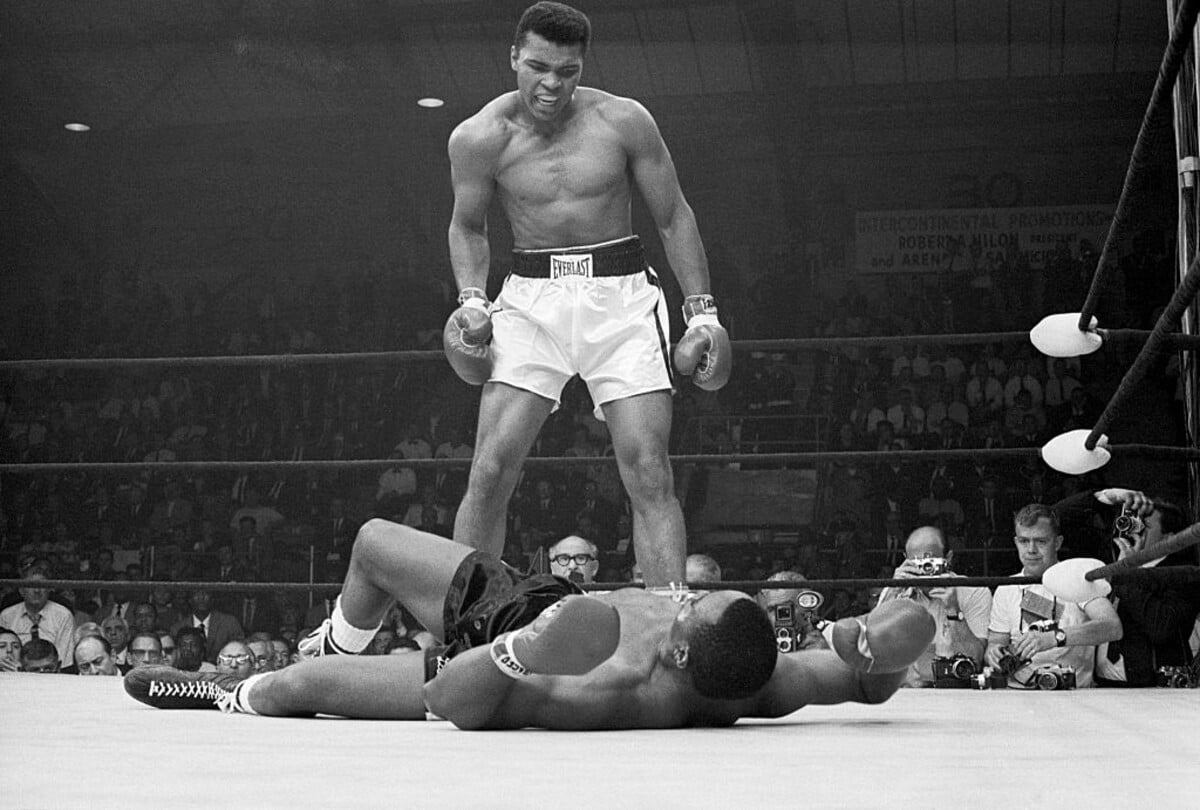
His journey was full of obstacles, though. Read on to find out some interesting facts about this legend that you probably didn't know.
1. Everything started with a stolen bicycle
A boxing or wrestling career can start in different ways. Some boxers were bullied and wanted to learn to defend themselves. Others simply liked to fight from an early age. Others were led by their parents to preserve the family tradition. However, Muhammad Ali's story was completely different.
According to History, his boxing career has been launched with a minor theft. When his favorite red and white Schwinn bicycle got stolen in October 1954, he reported it to Officer Joe Martin in his hometown of Louisville, Kentucky. He swore angrily that he would beat whoever was responsible for this.
Martin was also a boxing coach. In an effort to transform his anger into something useful, he suggested to the young man to first learn how to fight properly. So the 12-year-old started training himself. Only six weeks later, Clay had won his first game. Although barely - on the split decision of the referees - but still.
2. He threw the gold medal into a river
The year was 1960, and Ali won a gold medal at the Rome Olympics. He defeated the more experienced and robust Pole Zbigniew Pietrzykowski. At first, he lost the first two rounds but managed to turn the course around. This is how he won the first precious metal in his career. He was only 18 at the time.
"I didn’t take that medal off for 48 hours. I even wore it to bed. I didn’t sleep too good because I had to sleep on my back so that the medal wouldn’t cut me," the boxer wrote in his autobiography. According to The Business Standard, the joy of winning didn't last long and was soon replaced by frustration and anger.
A restaurant in his hometown of Louisville didn't want to serve the young boxer because of his skin color. His brother, Rahman Ali, told the Smithsonian Channel how it happened: "They said they don't serve black people. But they didn't say that. They used the "N" word. So my brother said he was an Olympic champion. They just said they don't give a damn what we are, and they simply wouldn't serve us there."
Ali was so disappointed and enraged that he ran to the Second Street Bridge and threw his Olympic gold medal away. "He said that the damned thing ain't nothing. He tore it off his neck and threw it into the Ohio River. I was standing right beside him. I cried," his younger brother revealed. Ali received a symbolic gold medal in 1996 from Juan Antonio Samaranch, then president of the International Olympic Committee, during the Atlanta Games.
3. He didn't want to be a slave anymore
Shortly after his first heavyweight world title victory in 1964, Ali publicly acknowledged his membership in the Nation of Islam (American Black Muslim Association). Soon, he made it clear in every interview that he would no longer bear the name Cassius Clay. It was a slave name, and he no longer wants to be a slave. According to National Public Radio (NPR), the boxer converted to Islam way earlier. He was a member of the association, keeping his faith to himself to avoid being "written off" in the sport.
After winning the championship, he did not hide at all. He said that from that moment on, his name would be Cassius X. Month later, he officially changed his name to Muhammad Ali in honor of the leader of the association Elijah Muhammad. Undoubtedly, he made this decision thanks to the influence of his close friend and Muslim mentor Malcolm X.
Their influence on the Muslim African-American community at the time was enormous, but their paths eventually diverged. They quarreled and never made up again. , and Malcolm X was murdered a year later. The film Blood Brothers: Malcolm X & Muhammad Ali portrays their relationship.
4. He refused to go to Vietnam, they banned him from boxing
According to Mental Floss, when the Vietnam War raged in 1967, Ali was also drafted. However, he refused to serve in the U.S. military for religious reasons, which had quite bad consequences. The boxer was arrested, and the New York State Athletic Commission immediately suspended his boxing license, revoking his title.
He was sentenced to five years in prison, and on top of that, he also received a fine of 10,000 dollars. He appealed and kept his freedom. According to Entertainment Weekly, the boxer used his free time outside the ring in 1969 to play in the musical Buck White on Broadway, for example.
Odsúdili ho na päť rokov väzenia, pričom dostal ešte aj pokutu 10-tisíc dolárov. Odvolal sa a zostal na slobode. Podľa týždenníka Entertainment Weekly boxer voľný čas mimo ringu využil napríklad na to, že si v roku 1969 zahral v muzikáli Buck White na Broadwayi.
He showed that he is an excellent talent outside the ring. "He sings with a pleasant, slightly impersonal voice, acts without embarrassment, and moves with innate dignity," the editor of the New York Times wrote about his performance. A year later, the New York Supreme Court ordered the renewal of Ali's boxing license, so he could finally return to where he still felt best after three years. The U.S. Supreme Court also overturned Ali's conviction by unanimous decision.
5. It could have been a great match if only...
In 1967, Ali was challenged to a boxing match by the 216-centimeter-tall Wilt Chamberlain, who became an NBA superstar later, writes the Basketball Network. While similar ring matches are standard today, they were unique at the time. But since Ali got a stop sign for three years, this match began to take on actual contours only after his return.
Whenever the two of them met in front of T.V. screens or other media, Ali seemed as confident as possible and constantly picked on the brave basketball player, reminding him that his 25-centimeter height advantage would play no role. However, Chamberlain did not allow himself to be intimidated, so they agreed on a match.
With thousands of enthusiastic fans looking forward to the exciting, thrilling duel, things cooled off a bit. At the pre-match press conference, the basketball lawyers suddenly announced that Chamberlain was withdrawing from the fight with Ali, stating as the main reason that the fee they would receive for the match was not enough for the athlete.
However, there has been speculations that the NBA star was frightened at the last minute by the world champion. Later, the basketball player revealed that his father had a big role in his final decision. He tried to talk him out of the match and advised him to practice shooting at the basket, which he does best.
6. He also tried MMA, but ended up in the hospital
According to Complex, Muhammad Ali even tried a match under the MMA rules in 1976. Of course, it wasn't the same as the MMA we know today. The world of mixed martial arts was still in its infancy. Ali was up against the Japanese pro wrestler Antonio Inoki in the ring. Knocking down his opponent, or bringing him to the ground, otherwise, was allowed at the time. Kicking was also allowed.
The spectators saw the kicks the most. However, it was a very bizarre duel, which would probably be called a total fiasco by many fans of martial arts today. Inoki laid on the ground almost the entire time, trying to kick Ali's legs while he stood above him. Ali wore boxing gloves, Inoki didn't have any, and both of them wore boxing shoes.
The match ended in a draw. Ali took home 6 million dollars from the game, but he was also swollen and sore after the Japanese's ridiculous, yet hard kicks. According to Complex, the boxer recovered in the hospital for two weeks from the blood clots he had suffered.

7. No actors, I'm the best
In 1977, Directors Tom Gries and Monte Hellman decided to make a biographical film about Ali based on his book. It mapped the boxer's life from the 1960 Summer Olympics to his second heavyweight title in 1974. And since Ali already had some acting experience, he decided to portray himself to be the most authentic.
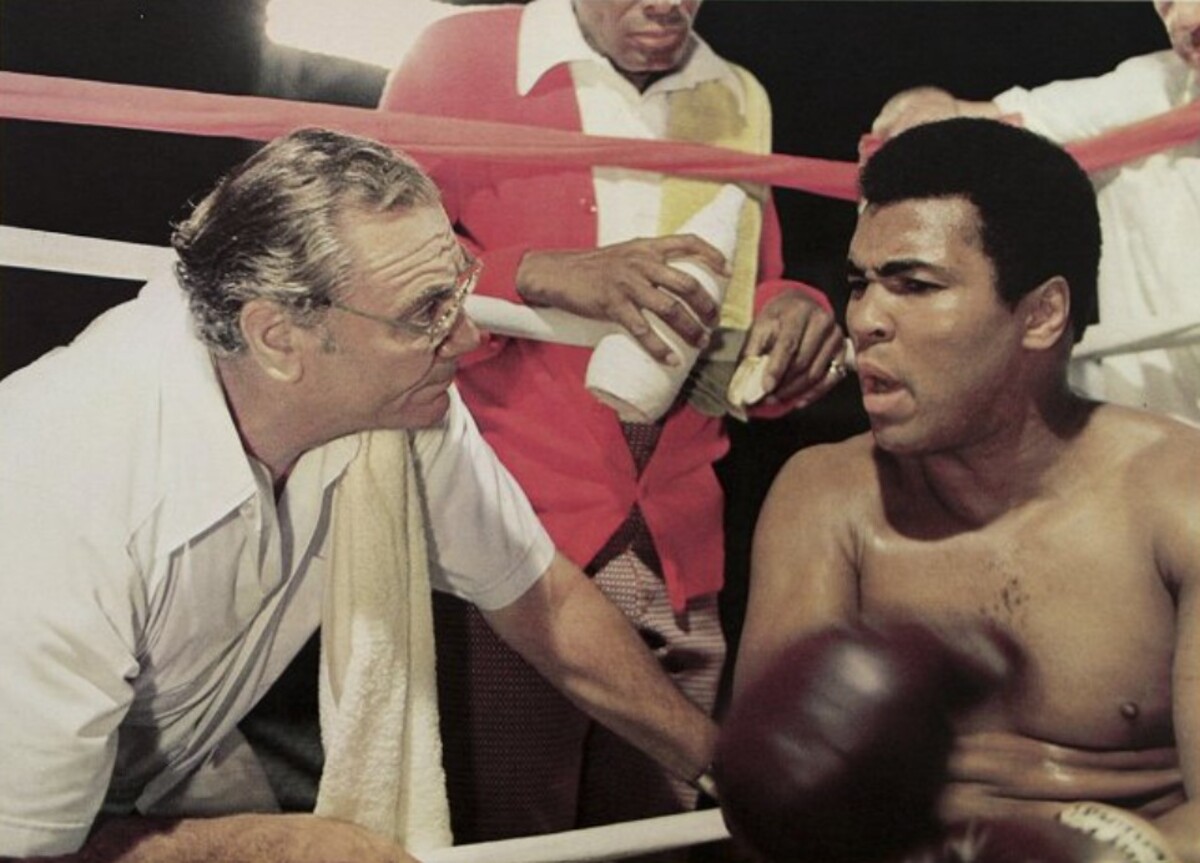
Ali was not a bad actor, and at times, he was even better than professional actors. Several other documentaries and feature films were made about the famous boxer. As Screen Rant writes, they were made by, for example, Terrence Howard, Eli Goree, or Will Smith in Michael Mann. He was even Oscar-nominated for his performance, but he didn't get a golden statue after all.
8. He wrestled Superman himself
The Kentucky boxer was so popular in the 1970s that he served as a source of inspiration for artist and writer Neal Adams. Neal created a comic called Superman vs. Muhammad Ali in 1978 (a reissue was released in 2010). In this crazy yet extremely fascinating story, the two met face to face in a fight for the strongest man on earth. Superman had to give up his superpowers for this.
As a result, he eventually had a bit of a disadvantage. However, both eventually had to join forces due to a dangerous alien invasion approaching our planet. The comic was published via D.C. Comics and other superheroes, such as Batman, Batgirl and Robin, also appeared in it. Also popular celebrities at the time, such as Frank Sinatra, Cher and
The Beatles.
9. He knew how to catch hits, but also save money
According to the Al Jazeera news portal, Muhammad Ali was an unofficial spokesman for millions of blacks and oppressed people around the world. He was known for his profound and concise statements that crept under anyone's skin. It was no different in 1984 in Seattle, at a charity event dedicated to a boxer named Sugar Ray Seales, who was partially blinded by injuries during his career.
In the same year, Ali was diagnosed with Parkinson's disease, causing him to develop speech problems. His enemies liked to point this out mockingly. However, he knew how to silence them with ease and elegance. Same as with his opponents in the ring.
"People say I talk so slow today. That's no surprise. I calculated I've taken 29,000 punches. But I earned $57m and I saved half of it. So I took a few hard knocks. Do you know how many black men are killed every year by guns and knives without a penny to their names? I may talk slow, but my mind is OK," Ali said.
10. He helped free 15 American prisoners in Iraq
According to New York Post, Muhammad Ali decided in 1990 to take a bold move. He traveled to Baghdad to meet with Saddam Hussein and negotiate the release of fifteen detained American hostages. U.S. President George H. W. Bush, diplomats, and the New York Times have criticized his journey at the time.
Despite prejudices and rumors that it's only "self-promo", Ali still managed to meet Hussein after a week in Baghdad, during which he visited local schools or prayed in mosques. The dialogue was open to the media, and after Ali's speech, Hussein said, "I’m not going to let Muhammad Ali return to the US without having a number of American citizens accompanying him."
Thanks to the boxer's initiative and perhaps a dose of naivety, he managed to free fifteen American prisoners, who then enthusiastically thanked Ali for a happy return to their families. Many still said he had only done it for the clout. Just weeks after the men returned home with the boxer, the United States began bombing Iraq.
According to the New York Post, he responded clearly and concisely: "I do need publicity, but not for what I do for good! I need publicity for my book, I need publicity for my fights, I need publicity for my movie — but not for helping people."
If problems persis, please contact administrator.

